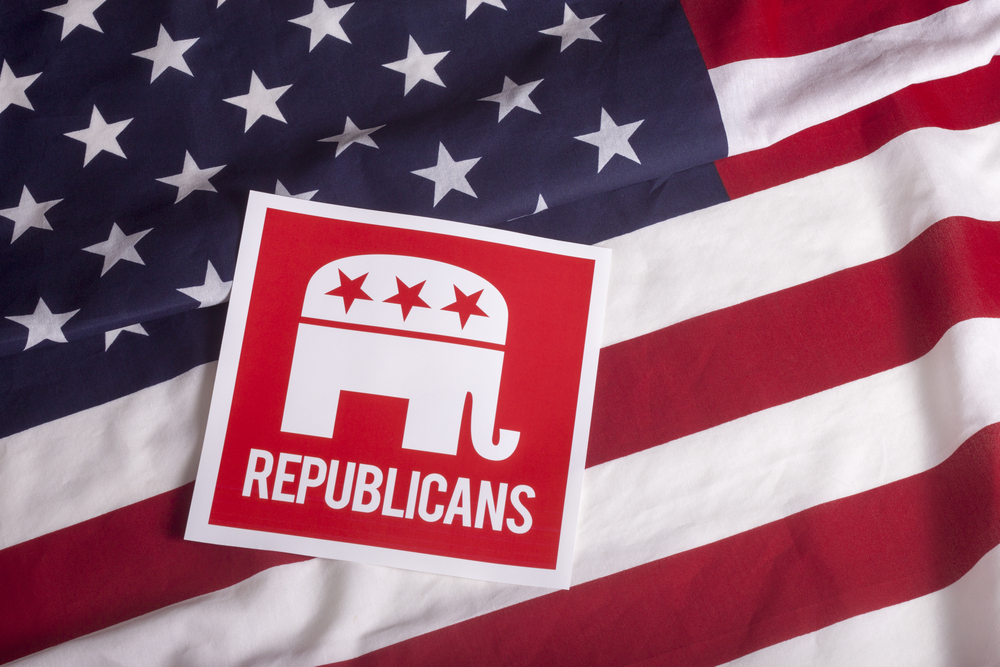TPP? Meet the Republicans

Please note that we are not authorised to provide any investment advice. The content on this page is for information purposes only.
In a surprising development, US congressional Republicans and a few of their business allies now pose the biggest threat to the Trans-Pacific Partnership (TPP). With the announcement of the agreement on 5 October, there was no support from a single Republican leader in Congress, nor any broad business federation in the United States. Republican support for the TPP is indispensable since most congressional Democrats oppose it and former Secretary of State Hillary Clinton has just come out against it.
In a surprising development, US congressional Republicans and a few of their business allies now pose the biggest threat to the Trans-Pacific Partnership (TPP). With the announcement of the agreement on 5 October, there was no support from a single Republican leader in Congress, nor any broad business federation in the United States. Republican support for the TPP is indispensable since most congressional Democrats oppose it and former Secretary of State Hillary Clinton has just come out against it.
Optimists argue that much of the immediate GOP criticism of the deal is temporary. The argument is that this criticism is the result of a misperception by some business sectors, such as pharmaceuticals, that the Obama administration sold them out in order to get a quick deal. The reality, as one Washington-based business source told me, is that ‘reaching agreement was a case of now or never’. Some of the deal’s discontents have convinced themselves that they can force a renegotiation, but that is a fantasy. ‘This was absolutely the best deal the United States could get, given the bargaining situation’, said one business source.
Many people, including myself, have grave reservations about the TPP and want to take the time to correct its flaws. But that option is now gone; it will either be this TPP or none at all. The question for legislators in all countries is whether the pact’s benefits outweigh its flaws. Does this TPP make things better or worse, and would rejecting it lead to a better pact down the road or to no pact at all?
Looming large over the debate in the US Congress is the immense veto power of assorted well-connected, well-financed special interests. Too many of those who claim to support ‘free trade” no longer mean a two-way street in which the United States helps promote its own prosperity by promoting that of its partners. Rather, they seek a system in which others open their markets to favoured American business sectors, but one should not expect the United States to reciprocate proportionately.
Senator Orrin Hatch (a Republican member for Utah), the chair of the Senate Finance Committee, lamented: ‘I am afraid this deal appears to fall woefully short’. Hatch is upset because the US pharmaceutical industry did not win its demand for adherence to the US standard of 12 years of data exclusivity (the protection of clinical test data) for biologics, protein-based drugs derived from living, lab-cultured cells. Instead, it compelled US trade representative Michael Froman to compromise. Hatch has warned for months that he might be willing to let the entire deal fail over this one issue.
Even more disappointing to those in favour of the TPP was what one Washington trade expert called ‘the surprising neutrality’ of Representative Paul Ryan (Republican member for Wisconsin), chair of the Ways and Means Committee and point man for the TPP in the House: ‘I am reserving judgment.’ Perhaps Ryan, regarded as an ardent free trader, did not want to get too far ahead of his GOP colleagues. It is worth noting that he hails from the dairy state of Wisconsin. In September 2015, the dairy lobby sent a letter to Congress in which they noted ‘grave concerns’ about a deal that would give New Zealand more access to the US market, but would not adequately open Canada’s market to the United States.
Then there is tobacco. Froman agreed to exempt tobacco products from a trade dispute-resolution mechanism, called investor–state dispute settlement (ISDS). The poster child for abuse of this process is a series of suits by Philip Morris and R.J. Reynolds against several countries that required plain packaging on cigarettes. For some countries, removing tobacco from ISDS protection was a vital public health issue. However, Senate Majority Leader Mitch McConnell, who hails from the tobacco state of Kentucky, has suggested several times that exempting tobacco could be a deal-killer for him.
Given the divisions among the business community, not one leading broad-based business federations could come up with a positive statement of support for the TPP. However, observers expect that these federations will eventually energetically lobby for the TPP.
What is most disconcerting is the one-way street attitude of too many of those who call themselves ‘free traders’. Some in business and Congress — in both parties — contend that the United States is already so open that there is little to do. This naturally causes resentment among the other TPP countries, who point to a host of issues, some of which the United States did not even allow a discussion in the main TPP talks. These include:
* ‘Buy America’ provisions of many state procurement laws (a US$1.4 trillion market)
* the protectionist ‘yarn forward’ rule in textiles
* the refusal to significantly bring down high import barriers on sugar and dairy
* tariffs on Japanese trucks (25 percent), cars (2.5 percent) and parts (mostly 6–10 percent) that will not be lifted under the TPP for 30, 25 and up to 15 years, respectively.
US leadership rests on others’ perception of it as a benign hegemon. By undermining such perceptions, one-way street notions of free trade pose a far greater threat to national security than any rival free trade agreement that China could create.
Will US Republicans torpedo the TPP? is republished with permission from East Asia Forum




